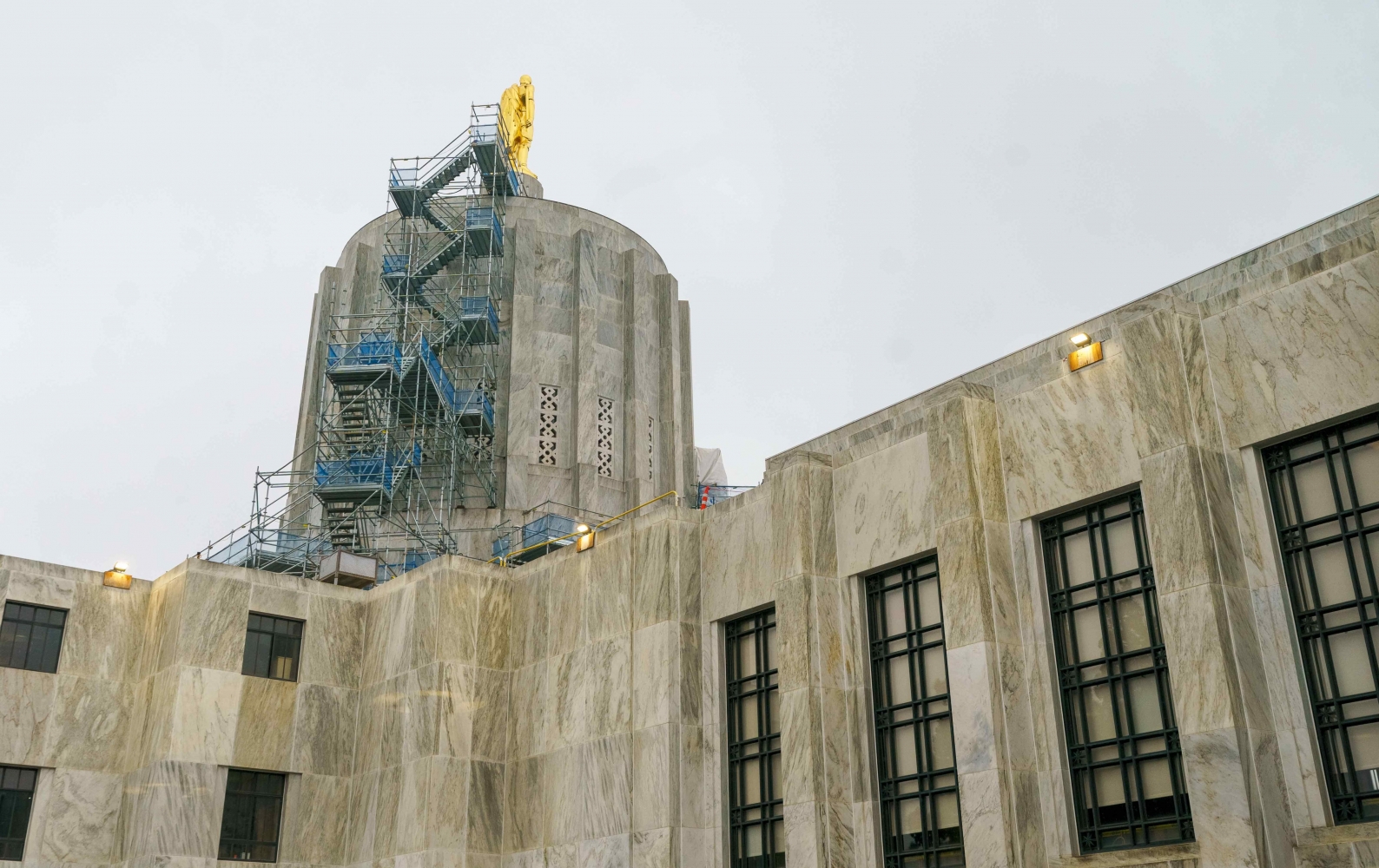

Published on: 11/19/2025
This news was posted by Oregon Today News
Description

Oregon lawmakers are in Salem this week, chewing over what looming budget cuts might mean for hundreds of state programs. But state economists on Wednesday offered hope that at least some of those cuts can be taken off the table.
Stronger than anticipated corporate tax receipts and an expected improvement in the nation’s economic picture have mostly closed a $373 million hole in the state’s current budget that economists predicted three months ago.
The state’s Office of Economic Analysis now says it expects $310 million of that deficit to be filled by revenues that look better than they did in August. That jump is largely driven by a surge in businesses paying taxes they owed from previous years.
Taken on its own, the news would theoretically leave lawmakers with a far smaller gap to fill – about $63 million. But a barrage of other budgetary factors will make their task more difficult when they meet for a month-long session next year.
Top budget writers said last month they anticipated the state’s actual shortfall to be in the neighborhood of $915 million. That figure factors in costs of a relatively mild wildfire season, an increase in the state’s administrative costs for food assistance, and a goal of keeping $350 million set aside as contingency.
Assuming those costs hold steady, the state is facing a budget hole closer to $600 million.
Even so, Wednesday’s forecast brought at least some heartening news to a building where budgetary hope has been hard to come by.
The state’s current two-year budget was days old when Congressional Republicans passed H.R. 1, the so-called One Big Beautiful Bill. The massive federal tax cut and spending package is expected to have broad impacts on Oregon’s spending into the future.
Tax cuts within H.R. 1 are expected to reduce the money headed into Oregon’s general fund this budget cycle by nearly $890 million, because federal tax changes impact how much Oregonians owe the state. The bill is also expected to cut around $15 billion in federal funding over the next six years – with many of the cuts coming to health and food programs for low-income Oregonians.
Lawmakers will need to decide how much state money they can redirect from other priorities to make up for that lost money.
As an initial exercise, state budget writers have directed all state agencies to propose cuts of 2.5% and 5% to their current budgets. They plan to analyze those proposals and prioritize what cuts to carry out when they meet in next year’s session.
“What we’re trying to do is go slow to go fast,” state Sen. Kate Lieber, a Portland Democrat and one of the state’s chief budget writers, said Tuesday, adding that no decision would be made until lawmakers get a fresher revenue forecast in February. “When we know what the numbers are, then we will be able to draw the line to do our constitutional duty of balancing the budget.”
Wednesday’s forecast marks the first time in the last six months lawmakers have seen their anticipated revenue for this budget revised upward. But it comes with a major caveat: State economists don’t have much of the economic data they usually rely on. The release of that information has been delayed because of the recent federal government shutdown.

“That does complicate the process,” said Carl Riccadonna, the state’s chief economist. “[Federal Reserve Chair] Jerome Powell said, ‘When you’re driving in the fog, slow down.’ And that has summarized our approach to the forecast this time around.”
In the absence of federal reports, Riccadonna and his team have looked to other data sources such as credit card spending, job postings, state tax revenues and more. Those suggest that the economy is growing more slowly than last year, but not veering toward recession.
“This gives us some sense that the missing data is likely to fill in the narrative that the economy continued to decelerate but not fall off a cliff,” Riccadonna told lawmakers.
The state’s economic forecast puts the likelihood that Oregon will slip into a recession at 25%. Even so, the state has shed more than 18,000 jobs in the last year, according to the most recent available data, and its unemployment rate increased faster than any other state’s from August 2024 to August 2025.
That would normally be a harbinger of economic woe. Riccadonna told lawmakers on Wednesday that, since 1980, every time the state has lost more jobs than it gained in a year, it has been in a recession. But while he said Oregon is in a “close brush” with recession, he isn’t predicting one.
“In no way do we want to make light of some softening in the economy,” Riccadonna told reporters Tuesday evening. “But when we look at jobless claims, when we look at tax revenue, we see evidence of stress, but we also see evidence that it’s not rolling into a recession dynamic.”
In fact, state economists see reasons to expect things are picking up. Riccadonna said that while economic growth will continue to slow this year — as it has in every year since an inflationary surge during the COVID-19 pandemic — national consensus is that growth will pick up slightly next year.
“We are at a point now where actually we’re sowing the seeds for some re-acceleration,” Riccadonna said.
Republican lawmakers, persistently critical of majority Democrats’ stewardship of the state, saw little reason for hope in the numbers.
“Oregon’s rising unemployment numbers and high taxes are harming families and forcing businesses to leave our state,” House Minority Leader Lucetta Elmer, R-McMinnville, said in a statement. “If we want to see our budget grow, we must cut taxes and create an economic climate where businesses can thrive and grow — not fear loss and decline.”
Democrats, too, signaled their displeasure with the current state of affairs. They laid blame squarely on President Trump, whose tax cut bill has ushered in the current budget crunch.
“We must continue to lean in on what’s working to address the cost of living across the state,” Gov. Tina Kotek, who recently authored a bill that will raise transportation taxes, said in a statement. “And Oregon’s long-term prosperity won’t happen by luck, so we must come together intentionally to ensure we create jobs and chart a path for a stronger economy.”
News Source : https://www.opb.org/article/2025/11/19/oregon-politics-budget-revenue-salem-economy/
Other Related News
11/19/2025
From the desk of SHERIFF JOHN WARD CURRY COUNTY OREGON 94235 MOORE STREET SUITE 311 29808 ...
11/19/2025
There is a reward of up to 15 million for information leading to the arrest and prosecutio...
11/19/2025
Oregon is facing some serious fiscal and social challenges in the years to come Thats why ...
11/19/2025











